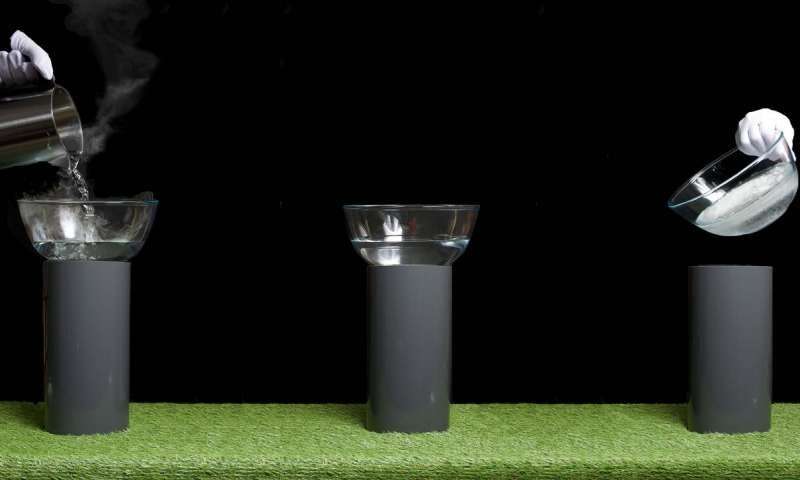Best of Last Week –Travel through wormholes, electricity from snow and health risk of dining late, skipping breakfast

It was a big week for physics as a team at the University of Zurich reported on some thermodynamic magic that enables cooling without energy consumption—they built a device that allowed heat to flow from a cold source to a warm object without any externally applied power. Also, a trio of researchers, Daniel Jafferis, Ping Gao and Aron Wall showed that travel through wormholes is possible, but it would be slow—slower than it would take to travel to the other site directly. And two teams of physicists, one from the Santa Fe Institute, the other MIT, took a look at the discrete-time physics hiding inside of our continuous-time world and found that the Markov process should unfold over a larger space than is typically used in research efforts. Also, a team from the University of Chicago and Fermilab announced that they had invented a way to trap a mysterious 'dark world' particle at the Large Hadron Collider—by exploiting a potential particle's slightly slower speed.
In space news a team working with NASA's Transiting Exoplanets Survey Satellite reported that they had already found an Earth-sized planet—the space-based telescope was launched just last year. Also, a team with members from Germany, the U.S. and France announced that an elusive molecule, the first in the universe, had been detected in space—theory had suggested that 13 billion years ago, the first molecule formed was HeH.
In other news, a team with members from Canada, the U.S., Egypt and Ireland reported on how they had created a scientific device that creates electricity from snowfall—they call it a snow-based triboelectric nanogenerator. Also, a team of UC Berkeley researchers found that an anxiety 'epidemic' is brewing on college campuses. And a team with members from the University of Houston, Purdue University and Rice University reported on their work with a high performance solid-state sodium-ion battery.
And finally, if you are one of the millions of people across the world who dine late and then skip a morning meal, you might be putting yourself at risk as a team at Botucatu Medical School, Universidade Estadual Paulista found that a late dinner and no breakfast is a killer combination—it puts people at great risk of dying from a heart attack.
© 2019 Science X Network